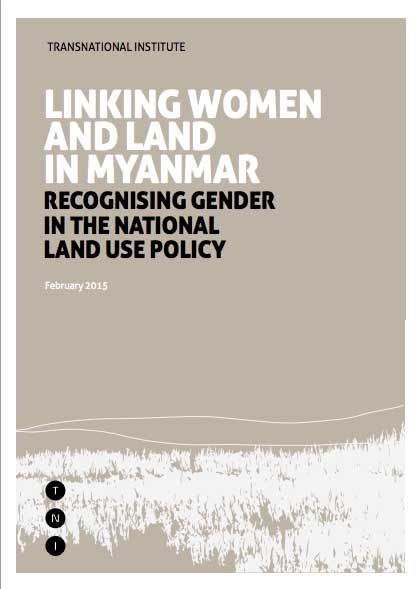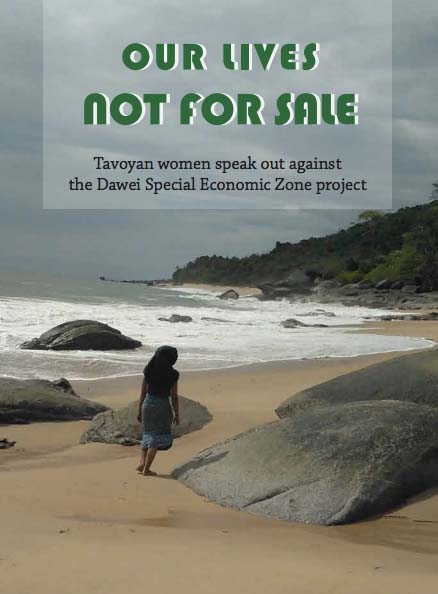Women (156 found)
Major Conflict Ongoing in Northern Burma – Reported Military Actions by the Burma Army in Kachin and Northern Shan States April/May 2015
Despite talks of a ceasefire, heavy and escalating fighting has been occurring throughout Northern Burma in the last two months. This report is a summary of this fighting; a more detailed daily analysis of events is available on request. Because this report uses only FBR reports and not those of other sources, it does not represent a totality of events; actual totals may be much higher […]
• • •To Recognize and Repair: Unofficial Truth Projects and the Need for Justice in Burma
 The advance towards a free and democratic Burma has so far done little to account for the crimes of its past. Emerging from a military dictatorship and opening its doors to the outside world has certainly led to an increased focus from the international community on the future of the country. As a result of increased scrutiny by the outside world, the U Thein Sein government has repeatedly reiterated their genuine commitment to improving the human rights situation. Despite government statements to the contrary, the situation for human rights defenders, journalists, farmers, land rights activists and civilians particularly in ethnic areas – has not improved […]
The advance towards a free and democratic Burma has so far done little to account for the crimes of its past. Emerging from a military dictatorship and opening its doors to the outside world has certainly led to an increased focus from the international community on the future of the country. As a result of increased scrutiny by the outside world, the U Thein Sein government has repeatedly reiterated their genuine commitment to improving the human rights situation. Despite government statements to the contrary, the situation for human rights defenders, journalists, farmers, land rights activists and civilians particularly in ethnic areas – has not improved […]
Malaysia: Discovery of Mass Graves a Call to Action
Suara Rakyat Malaysia (SUARAM) is extremely saddened by the heart-wrenching discovery of a mass grave of some 100 Rohingya in Perlis. We hope that the Malaysian government will now treat this issue with the seriousness it deserves and ensure an impartial and independent investigation is conducted. We note that there have been reports relating to the existence of such camps and holding houses in Malaysia for some time; we would urge the impartial and independent investigation to include the question of why apparently so little was done to act on these reports until now […]
• • •Statement by Ms Yanghee Lee, Special Rapporteur on the Situation of Human Rights in Myanmar at the 28th Session of the Human Rights Council
I thank you for this opportunity to address the Human Rights Council for the first time, at a pivotal time in the reform process in Myanmar.
• • •Advance Unedited Version: Report of the Special Rapporteur on the situation of human rights in Myanmar, Yanghee LEE
Since 2011, Myanmar has undergone far-reaching changes that have affected many aspects of life in the country. However, there continue to be signs of backtracking by the Government and increasing concerns over discrimination and ethnic conflict […]
• • •Amnesty International Annual Report – Myanmar Chapter
Despite ongoing political, legal and economic reforms, progress on human rights stalled, with some backward steps in key areas. The situation of the Rohingya deteriorated, with ongoing discrimination in law and practice exacerbated by a dire humanitarian situation. Anti-Muslim violence persisted, with the authorities failing to hold suspected perpetrators to account. Reports of abuses of international human rights and humanitarian law in areas of armed conflict persisted. Freedoms of expression and peaceful assembly remained severely restricted, with scores of human rights defenders, journalists and political activists arrested and imprisoned. Impunity persisted for past crimes […]
• • •Linking Women and Land in Myanmar: Recognising Gender in the National Land Use Policy
 The draft National Land Use Policy (NLUP) that was unveiled for public comment in October 2014 intends to create a clear national framework for managing land in Myanmar1. This is a very important step for Myanmar, given the fundamental importance of land policy for any society – particularly those with recent and complex histories of political and armed conflict and protracted displaced populations. With 70% of Myanmar’s population living and working in rural areas, agriculture is a fundamental part of the country’s social and economic fabric. The majority of these are small-holder farmers, whose land rights are currently under threat. The situation is particularly dire for the country’s ethnic minority groups, who make up an estimated 30% of the population […]
The draft National Land Use Policy (NLUP) that was unveiled for public comment in October 2014 intends to create a clear national framework for managing land in Myanmar1. This is a very important step for Myanmar, given the fundamental importance of land policy for any society – particularly those with recent and complex histories of political and armed conflict and protracted displaced populations. With 70% of Myanmar’s population living and working in rural areas, agriculture is a fundamental part of the country’s social and economic fabric. The majority of these are small-holder farmers, whose land rights are currently under threat. The situation is particularly dire for the country’s ethnic minority groups, who make up an estimated 30% of the population […]
WORLD REPORT 2015
Burma
The reform process in Burma experienced significant slowdowns and in some cases reversals of basic freedoms and democratic progress in 2014. The government continued to pass laws with significant human rights limitations, failed to address calls for constitutional reform ahead of the 2015 elections, and increased arrests of peaceful critics, including land protesters and journalists […]
• • •Our Lives Not For Sale: Tavoyan Women Speak Out Against the Dawei Special Economic Zone Project
 This report exposes the damaging impacts of the Dawei Special Economic Zone (DSEZ) project on rural Tavoyan women living in six affected villages in southern Burma. Most of the local population are fisherfolk and farmers, who have lived sustainably for generations in this isolated coastal area. They have been given no choice about accepting this multi-billion dollor Thailand-Burma joint venture, which will turn their pristine lands into the largest petrochemical estate in Southeast Asia […]
This report exposes the damaging impacts of the Dawei Special Economic Zone (DSEZ) project on rural Tavoyan women living in six affected villages in southern Burma. Most of the local population are fisherfolk and farmers, who have lived sustainably for generations in this isolated coastal area. They have been given no choice about accepting this multi-billion dollor Thailand-Burma joint venture, which will turn their pristine lands into the largest petrochemical estate in Southeast Asia […]
‘If they had hope, they would speak’: The Ongoing Use of State-Sponsored Sexual Violence in Burma’s Ethnic Communities
In January 2014, the Women’s League of Burma (WLB) published a report which demonstrated the systematic use of rape by the Burma Army as a strategy to subjugate communities across the country. We documented over a hundred cases of sexual violence in the years since President Thein Sein took office – a number which we believe grossly underestimates the true scale of the problem. Drawing on evidence gathered by our member organisations across Burma, we argued that there are clear links between militarisation, investment and human rights abuses. We also proposed a number of steps to uproot the culture of impunity which surrounds sexual violence, and prevents survivors from obtaining justice. Whilst recent months have seen positive action taken in several areas, the pillars which provide impunity for perpetrators of human rights abuses remain in place. In January, we called for constitutional reform to place the military under civilian control; the establishment of effective judicial and non-judicial mechanisms to investigate human rights abuses, particularly those relating to sexual violence, and; greater participation of women in the peace process dialogue. […]
• • •

 All posts
All posts